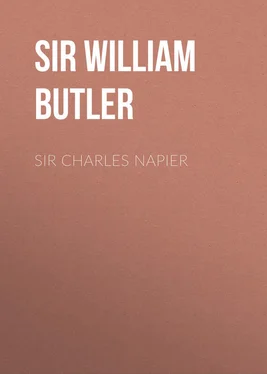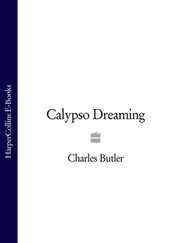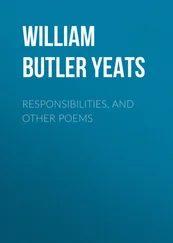William Butler - Sir Charles Napier
Здесь есть возможность читать онлайн «William Butler - Sir Charles Napier» — ознакомительный отрывок электронной книги совершенно бесплатно, а после прочтения отрывка купить полную версию. В некоторых случаях можно слушать аудио, скачать через торрент в формате fb2 и присутствует краткое содержание. Жанр: foreign_antique, foreign_prose, на английском языке. Описание произведения, (предисловие) а так же отзывы посетителей доступны на портале библиотеки ЛибКат.
- Название:Sir Charles Napier
- Автор:
- Жанр:
- Год:неизвестен
- ISBN:нет данных
- Рейтинг книги:3 / 5. Голосов: 1
-
Избранное:Добавить в избранное
- Отзывы:
-
Ваша оценка:
- 60
- 1
- 2
- 3
- 4
- 5
Sir Charles Napier: краткое содержание, описание и аннотация
Предлагаем к чтению аннотацию, описание, краткое содержание или предисловие (зависит от того, что написал сам автор книги «Sir Charles Napier»). Если вы не нашли необходимую информацию о книге — напишите в комментариях, мы постараемся отыскать её.
Sir Charles Napier — читать онлайн ознакомительный отрывок
Ниже представлен текст книги, разбитый по страницам. Система сохранения места последней прочитанной страницы, позволяет с удобством читать онлайн бесплатно книгу «Sir Charles Napier», без необходимости каждый раз заново искать на чём Вы остановились. Поставьте закладку, и сможете в любой момент перейти на страницу, на которой закончили чтение.
Интервал:
Закладка:
As the morning wore on without hostile movement on the part of the French, Moore, believing that his enemy did not intend to accept the battle he had offered since the preceding day, made preparations to embark his army during the coming night. His reserve, being nearest the roadstead, was to leave the shore as soon as dusk set in, and one by one the brigades opposite the French were to fall back under cover of darkness to the town, and there enter the boats which were to carry them to the ships. These arrangements having been made, the General mounted his charger in Corunna about one o'clock P.M. to visit his army and give the necessary directions for the movement to the shore. He moved slowly out with a heavy heart. Fate seemed steadily set against him. The enemy in front would not attack, and beyond the sea – there, where these vessels were so soon to carry him and his army – he knew but too well that there was another enemy waiting to write him down and vote him down, and to heap sneer and censure upon his actions. All at once there came the sound of a heavy cannon. Another and another shot rolled round the echoing hills. The fine face flushed with the light of hope, spurs were driven deep into the charger's flanks, and, galloping at full speed along the rocky causeway, Moore was soon upon the field – the battle of Corunna had begun.
The right wing of the English army, standing in line on the ridge above the village of Elvina, was exposed to the full force of the eleven-gun battery, whose cannonade had thus opened the battle. Napier's regiment, the Fiftieth, stood just over Elvina, his pickets occupying that village. As each shot gave the enemy a better distance for the succeeding ones, the range was soon found, and the round shot, falling with accuracy upon the line, tore gaps through it and ploughed the surface of the surrounding ground. For a time the men stood silent and motionless under this trying ordeal, but as increasing accuracy caused more frequent casualties in the ranks, a murmur arose from the soldiers, and the cry of "Where is the General?" was audible along the line. Of all the work of war, that of standing steady doing nothing under fire tries the nerves most sorely, and as at this moment in the opening scene at Corunna the forward movement of the French columns became visible, it was no wonder that anxiety for the presence of the chief in whom they so implicitly believed should find vent in words. They had not long to wait the answer to their question. We have seen how the first sound of cannon had roused Moore from his transient gloom, and made him spur forward along the road from Corunna. The picture of his arrival at the scene of action has been given us by Charles Napier, and there are few more striking bits of battle-painting. Napier is standing in front of his line, his pickets are falling back from Elvina before the advancing French skirmishers; behind the enemy's light troops Mermet's heavy column of infantry is coming on rapidly to the attack, their shouts of En avant! rising above the crack of musketry or the boom of the battery whose shot is tearing fast through the line.
Suddenly (says Napier) I heard the gallop of horses, and turning saw Moore. He came at speed, and pulled up so sharp and close to me that he seemed to have alighted from the air, man and horse looking at the approaching foe with an intenseness that seemed to concentrate all feeling in their eyes. The sudden stop of the animal, a cream-coloured one with black tail and mane, had cast the latter streaming forward, its ears were pushed out like horns, while its eyes flashed fire, and it snorted loudly with expanded nostrils, expressing terror, astonishment, and muscular exertion. My first thought was, it will be away like the wind; but then I looked at the rider and the horse was forgotten. Thrown on its haunches, the animal came sliding and dashing the dirt up with its forefeet, thus bending the General forward almost to its neck; but his head was thrown back, and his look more keenly piercing than I ever before saw it. He glanced to the right and left, and then fixed his eyes intently on the enemy's advancing column, at the same time grasping the reins with both hands, and pressing the horse firmly with his knees; his body seemed thus to deal with the animal, while his mind was intent on the enemy, and his aspect was one of searching intentness beyond the power of words to describe. For awhile he looked, and then galloped to the left without uttering a word.
Shortly after, Moore came back to the Fiftieth again. The fight had thickened, Elvina had been carried by the French column, and the enemy's light troops had begun to ascend the foot of the British position. Napier asks if he may send his grenadier company down the slope? Moore thinks they may fire upon our own pickets; but Napier tells him that the pickets have already fallen back. "Then send out your grenadiers," replies the General, and away he gallops again to another part of the field. Once more he comes back to where Napier is standing. The round shot are falling thickly about, the enemy's attack is now fully developed, and it is evident he means to try his best at this salient of the position to turn the English right and cut the army from its base; but he has not infantry for such a movement. A large proportion of his total force is cavalry, and they are of little use in the enclosures and high fenced lanes that cover the ground. While Moore stands talking this third time to Napier a round shot from the French battery strikes full between the two men. Moore's horse wheels on his haunches, but the rider forces him to front again, while he asks Napier if he has been hit. "No, sir." Then comes a second shot plump into the right of the Forty-Second, which is next in line to the left. A Highland grenadier has had his leg torn off, and in the agony of the wound he cries out. A wave of agitation begins to pass through the men nearest the sufferer; the gap in the ranks is slower to fill up than when men had fallen who were silent. Moore rides to the spot. "This is nothing, my lads," he says; "keep your ranks; take the man to the rear." Then addressing the wounded man, he says: "My good fellow, don't cry out so, we must bear these things quietly." Then he rode to another part of the field; but soon returning again to the ridge above Elvina, he directed the Forty-Second to descend the slope and attack that place. A fierce struggle ensued amid the enclosures and houses of the village. Napier, seeing the Forty-Second pass his flank, ordered his regiment to advance in line upon the village. He made this movement entirely upon his own responsibility; for except when Moore was present the initiative of command appeared to be wholly wanting among the English generals at Corunna. Passing the Forty-Second, Napier carried his regiment through Elvina, until at the side of the village nearest to the enemy his advance was checked by an overwhelming fire. So deadly was the storm of cannon and musketry at this point that both the colours went down almost together, as the ensigns who carried them were shot. Napier's sword-belt was shot off, and the Fiftieth being the advanced regiment in the battle found itself encircled on three sides by a sheet of fire. Looking to his front, Napier saw the heavy battery now close above him. The idea at once occurred to him to assault it; and gathering by great personal exertions about thirty of his men and three or four officers together, he led them straight upon the battery. But his efforts were useless. The companies had become broken and disordered in carrying the village: the Forty-Second had not continued its advance to Elvina; and no supporting corps was sent to strengthen and secure the success which the Fiftieth had achieved. This forlorn hope leading straight upon the battery went down between a fire which smote them almost as much from their friends in rear as from their enemies in front, and by the time the foot of the steep ascent was gained, Charles Napier found himself almost alone before the enemy. The reason why this bold onslaught upon the battery, which was the key of the French position, was thus allowed to run out into a useless sacrifice of life was easily explained later on, although at the moment Napier, knowing nothing of what was happening in his rear, angrily cursed at the supposed hesitation of his men to follow him. To explain the unfortunate result of this attack we must go back to the original position on the ridge. Scarcely had Napier led the Fiftieth upon Elvina than Moore rode up again to the point where he had before stood, and casting his eye upon the tide of battle flowing below him took in at once the situation. Riding forward in the wake of the Fiftieth, he cheered on that regiment to the attack. "Well done, Fiftieth; well done, my majors," he cried; for Napier's promotion to field-rank had been due to his influence, and Stanhope the other major was endeared to him by stronger ties. Charles Stanhope was the brother of the woman to whom Moore a few hours later was to send his last message. When thirty years later men criticised with idle censure the life of Lady Hester Stanhope, they forgot how much she had suffered before they had been born. Austerlitz had broken the heart of her illustrious uncle; her lover and her brother slept on the battle-field of Corunna.
Читать дальшеИнтервал:
Закладка:
Похожие книги на «Sir Charles Napier»
Представляем Вашему вниманию похожие книги на «Sir Charles Napier» списком для выбора. Мы отобрали схожую по названию и смыслу литературу в надежде предоставить читателям больше вариантов отыскать новые, интересные, ещё непрочитанные произведения.
Обсуждение, отзывы о книге «Sir Charles Napier» и просто собственные мнения читателей. Оставьте ваши комментарии, напишите, что Вы думаете о произведении, его смысле или главных героях. Укажите что конкретно понравилось, а что нет, и почему Вы так считаете.












